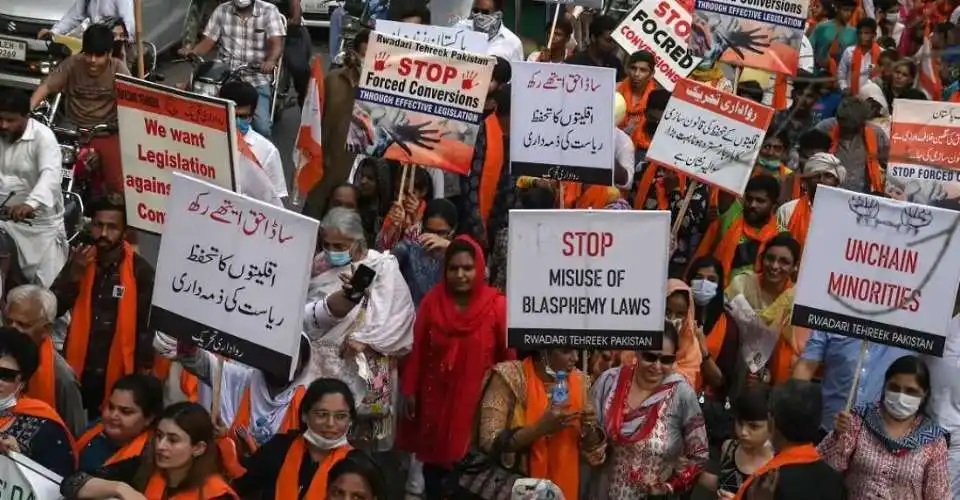Pakistan’s minorities seek ‘statutory body’ to protect rights
The current panel, which functioned under the religious affairs ministry, was moved to the human rights ministry recently
Apr 29, 2025

By Kamran Chaudhry
Pakistani minority leaders and rights activists have stressed that the National Commission for Minorities must be a “statutory body,” independent of ministerial influence, to effectively safeguard the rights of religious minorities as enshrined in the Constitution.
An executive order recently moved the federal minorities commission from the Ministry of Religious Affairs and Interfaith Harmony to the Ministry of Human Rights.
This “transfer” was ordered by Prime Minister Shehbaz Sharif through an April 23 notification.
Christian rights activist Nasir William welcomed the move but urged further action. “The next step would be establishing a commission through an act of parliament to ensure an independent mandate and authority,” he told UCA News on April 28.
William said it was difficult for members of the minorities commission to address issues under the Ministry of Religious Affairs, “which dismissed concerns like the rise in forced conversions or misuse of blasphemy laws.”
The representatives of minorities on the panel were often outnumbered by political, bureaucratic and majority religious appointees, he added.
The minorities commission “cannot depend on the ulemas [clerics] to give it directions,” said Father Bonnie Mendes, former executive secretary of the Catholic bishops' National Commission for Justice and Peace.
“It must have a strong independent status as ruled by the Supreme Court,” Mendes told UCA News.
The Supreme Court directed the government to form an independent commission “to monitor the practical realization of the rights and safeguards provided to the minorities under the Constitution and law” in 2014.
The judgment stemmed from a suo motu notice taken by the Supreme Court following the Peshawar church bombing in September 2013, which resulted in the tragic loss of over 80 lives.
A panel was set up in 2020 to function under the Ministry of Religious Affairs and Interfaith Harmony. It completed its tenure in May 2023
Jaipal Chhabria, who represented the Hindu minority on the now-defunct minorities commission, said the functioning under the Ministry of Human Rights would be “comparatively better.”
“But we still demand an independent body without interference,” he said, adding that being under the control of a ministry adversely impacted the budget proposals and meeting schedules.
Albert David, a former panel member representing the Church of Pakistan, the country's main Protestant body, said that rather than function under a federal ministry, “the commission must have legislative backing to work effectively.”
On April 17, a subcommittee of the Senate Standing Committee on Human Rights approved the National Commission for Minorities Bill, 2025, seeking to create an independent, legally backed commission to safeguard minority rights.
Religious minorities in Pakistan have faced widespread discrimination and violence, particularly after Pakistan was declared an Islamic state in 1971.
Incidents of violence, including church attacks, kidnappings of minor girls for forced marriages and conversions, and false accusations under blasphemy laws, continue to be on the rise.
In 2024, 344 people, including 20 Christians, were accused under the country’s blasphemy laws, according to the Centre for Social Justice.
At least 83 cases of abduction and forced conversion involving 52 Hindu and 31 Christian girls and women were also reported, it said.
Hindus remain Pakistan’s largest religious minority, accounting for 1.61 percent of the 240 million population, followed by Christians at 1.37 percent, according to 2023 government data.
Muslims make up 96.35 percent, while Sikhs, Buddhists, and Zoroastrians account for less than one percent.--ucanews.com







Total Comments:0